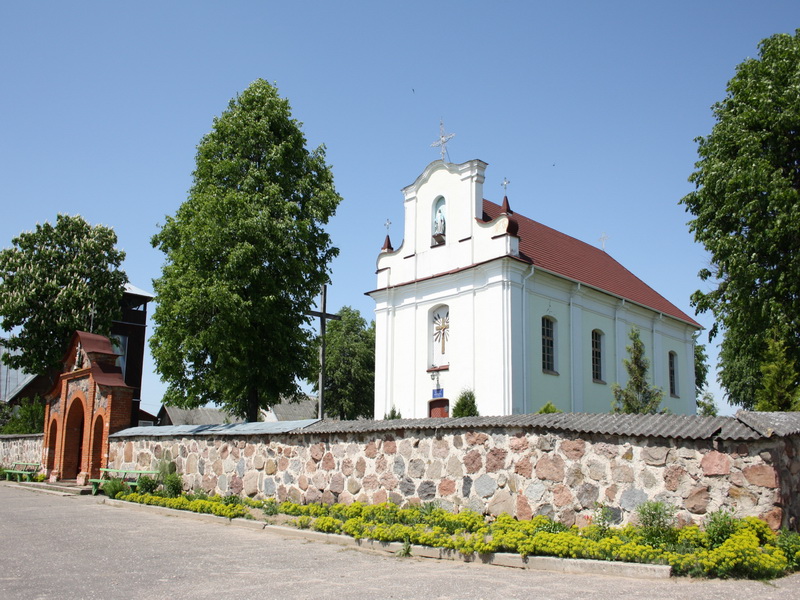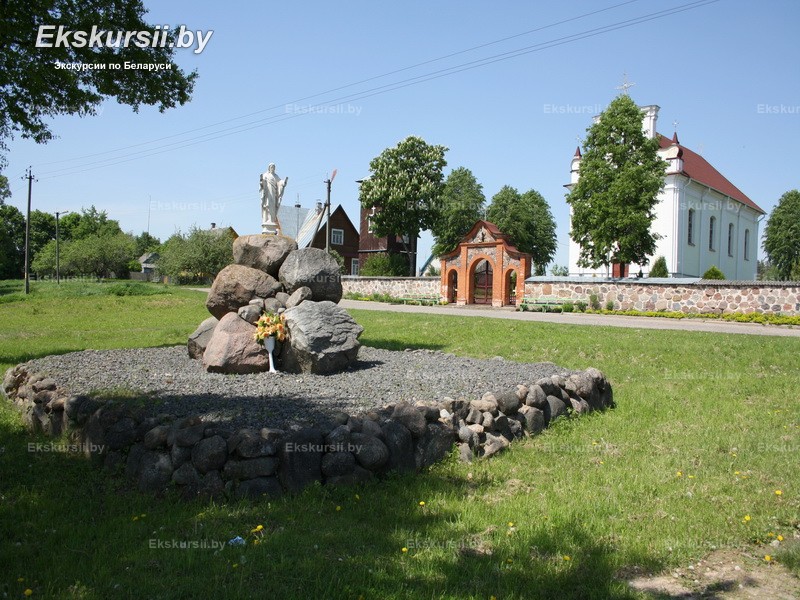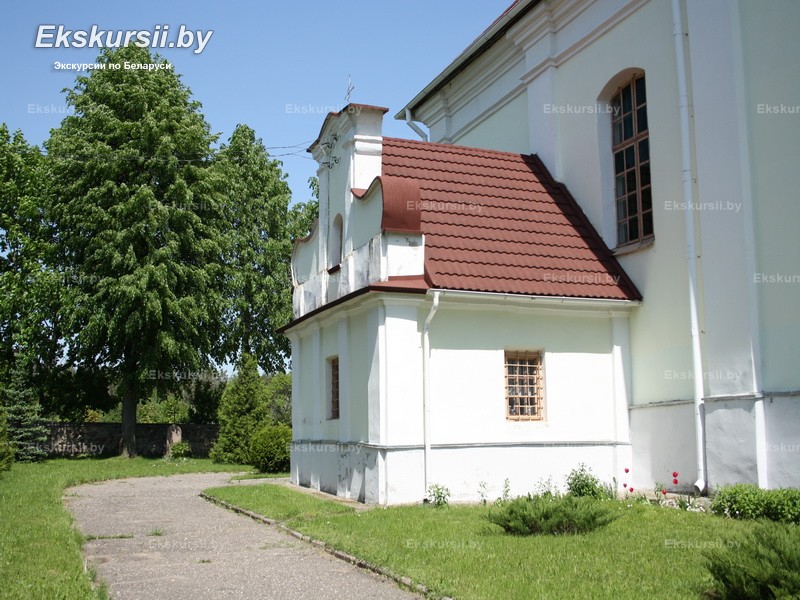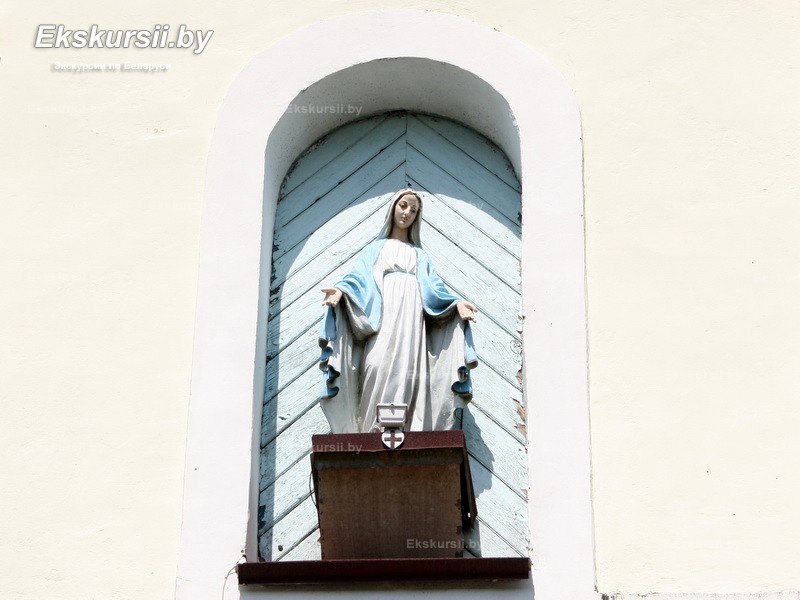History
The first mention of Kostenievichi dates back to the 15th century, but a key turning point in the village's religious life came in 1652, when Pavel Leskovsky donated the settlement to the Vilnius Jesuit Collegium. By 1661, a Catholic parish was established here. Initially, the Jesuits built a wooden church dedicated to Saint Ignatius of Loyola. A century later, in 1763, a stone church was erected in its place, partially funded by local parishioners. In the following years, the church was led by priests Venceslav Zavadsky and Heinrich Khvastetsky. The wooden bell tower was presumably added in the 19th century. After the suppression of the Jesuit order in 1773, the temple came under the administration of secular clergy and remains an active parish church to this day.
Architecture
The church is a rectangular building without an apse, characteristic of Jesuit religious architecture of the era. Its main façade is topped with a Baroque gable with volutes. Inside, a wooden box ceiling has been preserved, and the floor is laid with multicolored mosaic stone. The centerpiece was a Baroque altar adorned with six Ionic columns and a layered cornice. Within it was a miraculous icon of the Virgin Mary, surrounded by angels and enclosed in a silver frame studded with gemstones. Although the original altar decoration has not survived, the church still radiates an atmosphere of sanctity and peace, preserving the memory of the past.
Excursions
An excursion from Minsk to the Kostenievichi Church of the Virgin Mary offers a unique journey in the footsteps of the Jesuits, a chance to explore the history of Belarusian Catholicism, and to see an outstanding example of 18th-century architecture. This tour is suitable for both individual travelers and organized groups interested in the region’s religious heritage, history, and culture. Visiting this church is not just about seeing a landmark — it is an encounter with living history still echoing within the ancient walls.



